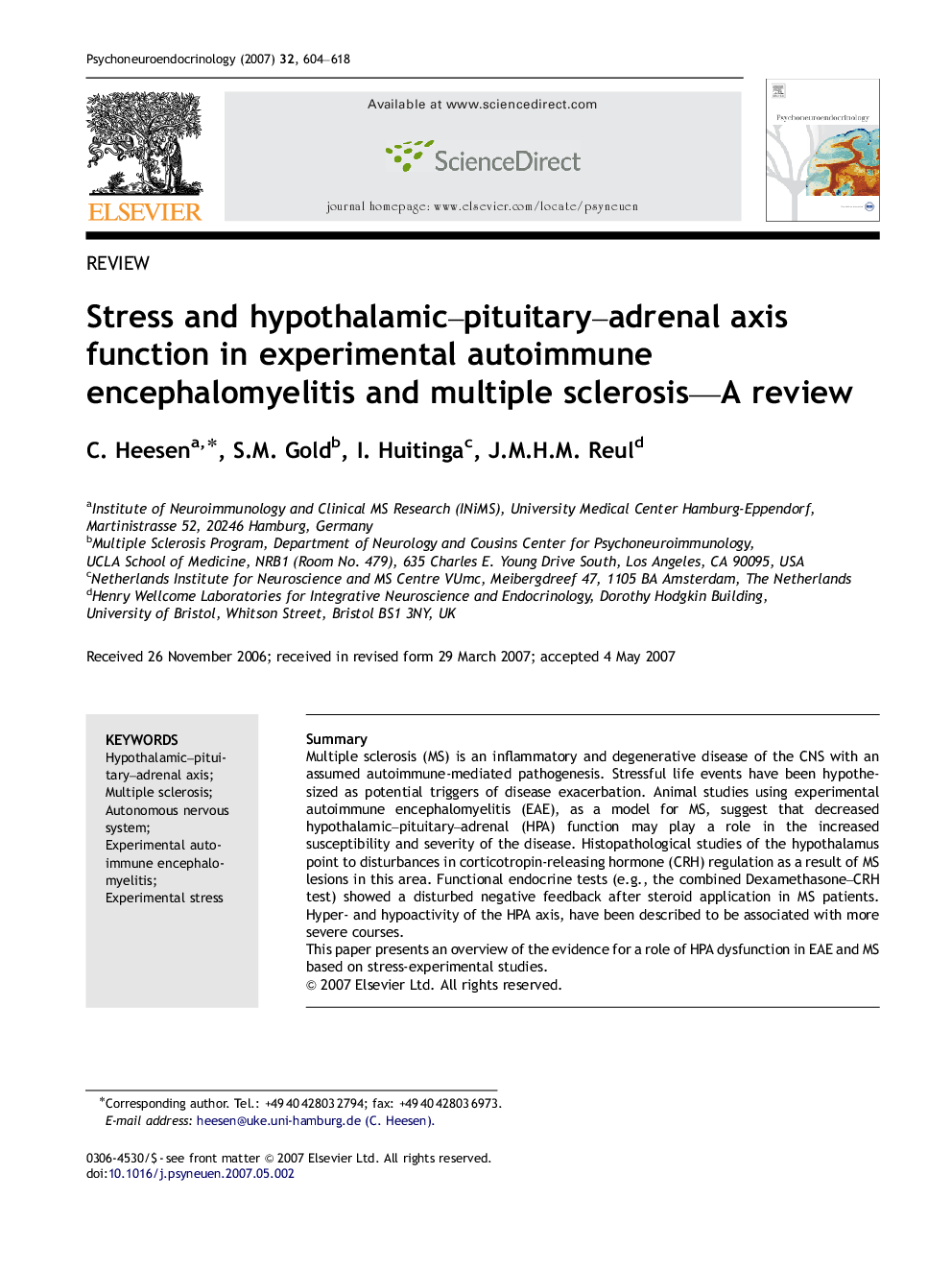| Article ID | Journal | Published Year | Pages | File Type |
|---|---|---|---|---|
| 336618 | Psychoneuroendocrinology | 2007 | 15 Pages |
SummaryMultiple sclerosis (MS) is an inflammatory and degenerative disease of the CNS with an assumed autoimmune-mediated pathogenesis. Stressful life events have been hypothesized as potential triggers of disease exacerbation. Animal studies using experimental autoimmune encephalomyelitis (EAE), as a model for MS, suggest that decreased hypothalamic–pituitary–adrenal (HPA) function may play a role in the increased susceptibility and severity of the disease. Histopathological studies of the hypothalamus point to disturbances in corticotropin-releasing hormone (CRH) regulation as a result of MS lesions in this area. Functional endocrine tests (e.g., the combined Dexamethasone–CRH test) showed a disturbed negative feedback after steroid application in MS patients. Hyper- and hypoactivity of the HPA axis, have been described to be associated with more severe courses.This paper presents an overview of the evidence for a role of HPA dysfunction in EAE and MS based on stress-experimental studies.
